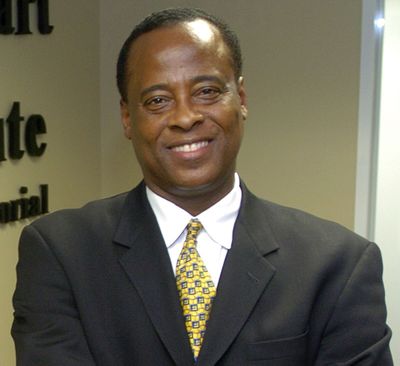Sources: Drugged Jackson left alone
Physician said singer frequently used drug

LOS ANGELES – Michael Jackson’s personal physician left the performer alone and under the influence of a powerful anesthetic to make telephone calls the morning the pop singer died, according to three people familiar with the investigation.
By the time he returned, Jackson had stopped breathing, the sources said.
Dr. Conrad Murray, identified in court records as a suspect in a police manslaughter investigation, legally acquired the operating room drug, propofol, from a Las Vegas pharmacy and gave it to Jackson as treatment for insomnia, said the sources.
In an interview with Los Angeles police detectives two days after Jackson’s death, Murray acknowledged obtaining and administering the medication, the sources said. He reportedly told police that the singer had returned to his rented home in the early hours of June 25 exhausted from a lengthy concert rehearsal but was unable to sleep.
Jackson had been using propofol as a sleep aid on and off for a decade, according to one law enforcement source. Murray told investigators that he had given Jackson doses of the drug repeatedly since taking a $150,000-a-month job as his doctor in May, the sources said.
The 51-year-old cardiologist told detectives that because there had never been a problem in the past, he felt comfortable leaving Jackson alone to place calls on his cell phone, the sources said. It’s unclear how long Murray was out of Jackson’s bedroom.
When Murray returned, the 50-year-old pop star was not breathing. Murray performed CPR on Jackson, and another person called 911. Paramedics arrived and rushed Jackson to a hospital, where he was pronounced dead.
Murray has maintained that he did nothing wrong. His attorney, Edward Chernoff, has repeatedly declined to say whether his client gave Jackson propofol. Asked Wednesday about the version of events outlined by the sources, the lawyer said: “I’m not going to dispute the police officers’ claims in that regard. They were there at the interview, and Dr. Murray did not lie to them. But they are not telling the whole story.”